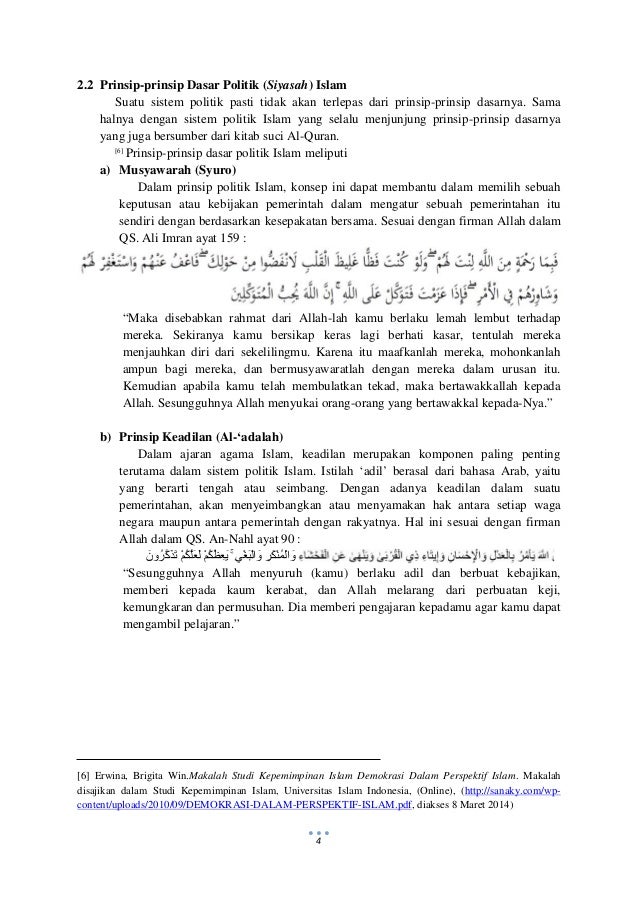Pdf Buku Politik Islam Kontemporer

Komiksi fnaf chitatj na russkom. If this is the case, we recommend disabling these add-ons.
Tsaqafah_Pemikiran Islam Kontemporer.pdf. Pemikiran Islam Kontemporer, Antara Mode Pemikiran dan Model Pembacaan.pdf. Kekalahan politik Arab-Islam oleh Barat pada tahun 1967. Islam dilihat dari perkembangan sosial umpamanya, hampir dalam setiap periode terdapat model-model gerakan umat Islam.  Sebagaimana terjadi pada zaman atau periode modern dan kontemporer yang mengalami perkembangan yang cukup pesat.
Sebagaimana terjadi pada zaman atau periode modern dan kontemporer yang mengalami perkembangan yang cukup pesat.
Author by: Gavin W. Jones Language: en Publisher by: Institute of Southeast Asian Studies Format Available: PDF, ePub, Mobi Total Read: 62 Total Download: 121 File Size: 48,5 Mb Description: 'This is an excellent and rare exploration of a sensitive religious issue from many perspectives _ legal, cultural and political.
The case studies from Indonesia, Malaysia, Singapore and Thailand portray the important and exciting, yet very difficult, negotiation of Islamic teachings in the changing realities of Southeast Asia, home to the majority of Muslims in the world. Interreligious marriage is an important indicator of good relations between communities in religiously diverse countries. This book will also be of great interest to students and scholars of religious pluralism in a Southeast Asian context, which has not been studied adequately.' - Zainal Abidin Bagir, Executive Director, Center for Religious and Cross-cultural Studies (CRCS), Gadjah Mada University, Indonesia 'The issue of Muslim-non-Muslim marriages has different connotations in the different Southeast Asian states. For example, in Thailand it is more a fluid cultural issue but in Malaysia it reflects great racial schisms with severe legal implications.

This book is a welcome one as it examines the issue not only from the perspectives of various Southeast Asian nations but also from so many angles; the legal, historical, social, cultural, anthropological and philosophical. The work is scholarly, yet accessible. Underlying it, there is a vital streak of humanism.' - Azmi Sharom, Associate Professor, Faculty of Law, University of Malaya. Author by: John Richard Bowen Language: en Publisher by: Cambridge University Press Format Available: PDF, ePub, Mobi Total Read: 54 Total Download: 463 File Size: 50,6 Mb Description: Muslims currently struggle to reconcile radically different sets of social norms and laws (including those derived from Islam, as well as contemporary ideas about gender equality and law) in Indonesia, the world's largest Muslim-majority country. John Bowen explores their struggle through archival and ethnographic research and interviews with national religious and legal figures.
His book relates to debates in any society where people struggle to live together with extreme differences in values and lifestyles and is welcomed by scholars and students in all branches of the social sciences. Author by: Kate O'Shaughnessy Language: en Publisher by: Routledge Format Available: PDF, ePub, Mobi Total Read: 79 Total Download: 228 File Size: 43,6 Mb Description: This book examines gender, state and social power in Indonesia, focusing in particular on state regulation of divorce from 1965 to 2005 and its impact on women.
Indonesia experienced high divorce rates in the 1950s and 1960s, followed by a remarkable decline. Already falling divorce rates were reinforced by the 1974 Marriage Law, which for the first time regulated marriage for both Muslim and non-Muslim Indonesians and restricted access to divorce. This law defined the roles of men and women in Indonesian society, vesting household leadership with husbands and the management of the household with wives. Drawing on a wide selection of primary sources, including court records, legal codes, newspaper reports, fiction, interviews and case studies, this book provides a detailed historical account of this period of important social change, exploring fully the impact and operation of state regulation of divorce, including the New Order government’s aims in enacting this legal framework, its effects in practice and how it was utilised by citizens (both men and women) to advance their own agendas. It argues that the Marriage Law was a tool of social control enacted by the New Order government in response to the social upheaval and protests experienced in the mid 1970s. However, it also shows that state power was not hegemonic: it was both contested and co-opted by citizens, with men and women enjoying different degrees of autonomy from the state.